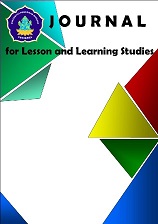Empowering Elementary Students Through the Kampus Mengajar Program: Literacy and Numeracy Insights
DOI:
https://doi.org/10.23887/jlls.v7i3.86847Keywords:
Kampus Mengajar Program, Literacy and Numeracy, Elementary SchoolsAbstract
Higher education in Indonesia faces challenges in producing graduates who align with contemporary needs, particularly in enhancing fundamental skills among elementary school students. The Merdeka Belajar Kampus Merdeka (MBKM) initiative seeks to foster flexible and relevant learning. This study aims to analyze the contributions of the fifth cohort of the Kampus Mengajar program in developing students' literacy and numeracy skills. A qualitative approach was employed, utilizing observation and documentation methods for data collection. The subjects were fifth-grade elementary school students, and data analysis was conducted descriptively by categorizing findings based on literacy and numeracy indicators. The results demonstrate that the Kampus Mengajar program positively contributes through activities such as reading corners and a 15-minute literacy program before formal learning sessions. These activities successfully increased students' reading interest, concentration, vocabulary expansion, and critical thinking. Moreover, pre-test results from the Minimum Competency Assessment (AKM) revealed that most students achieved basic literacy competency, providing valuable insights for teachers in designing more focused learning. In conclusion, the Kampus Mengajar program has a significant impact on improving students' literacy and numeracy skills. Recommendations include expanding collaboration with local governments, non-governmental organizations, and donors to provide more adequate resources.
Published
How to Cite
Issue
Section
License
Copyright (c) 2024 Vivi Apriliatini, Elizar, Berta apriza, Masitoh

This work is licensed under a Creative Commons Attribution-ShareAlike 4.0 International License.
Authors who publish with the Journal for Lesson and Learning Studies agree to the following terms:
- Authors retain copyright and grant the journal the right of first publication with the work simultaneously licensed under a Creative Commons Attribution License (CC BY-SA 4.0) that allows others to share the work with an acknowledgment of the work's authorship and initial publication in this journal.
- Authors are able to enter into separate, additional contractual arrangements for the non-exclusive distribution of the journal's published version of the work (e.g., post it to an institutional repository or publish it in a book), with an acknowledgment of its initial publication in this journal.
- Authors are permitted and encouraged to post their work online (e.g., in institutional repositories or on their website) prior to and during the submission process, as it can lead to productive exchanges, as well as earlier and greater citation of published work. (See The Effect of Open Access)




